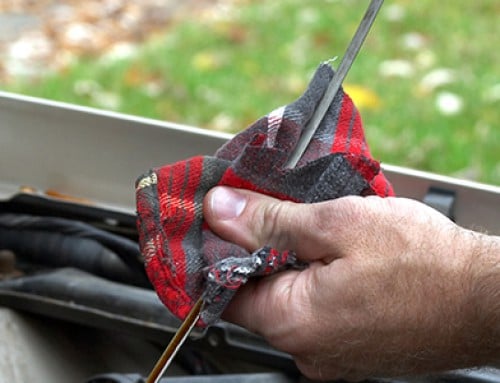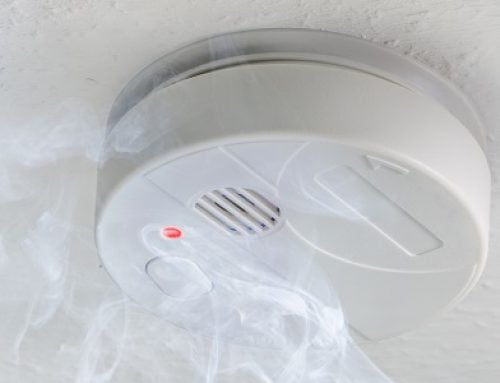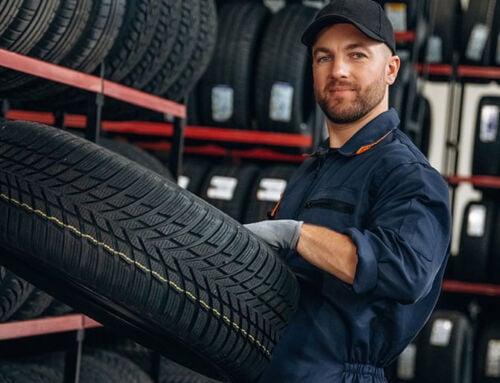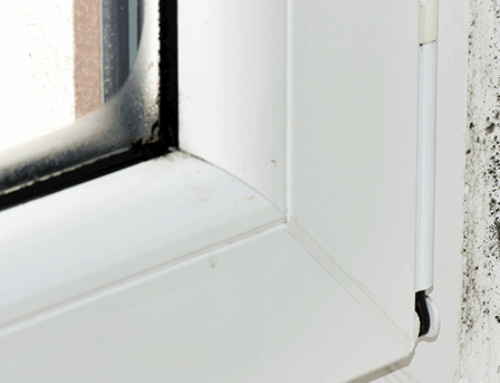More Canadians are embracing domestic travel, such as camping and road trips, which is driving interest in recreational vehicles. Indeed, three in four Canadians (77 per cent) are planning to travel domestically this year, up from 69 per cent last year, according to a report by Leger.
As Canadians increasingly vacation in their own backyard, the market for recreational vehicles — including fifth wheel campers, folding campers, truck campers, travel trailers and motorhomes — is predicted to grow consistently from 5.23 per cent in 2025 to 5.75 per cent in 2029, according to 6Wresearch.
That’s good news for Canadian RV dealers. But whether you sell, lease, or maintain RVs for your customers, there are a growing number of risks you take on as part of your business. Here’s a round-up of some of the key risks and how to mitigate them.
What are the key RV dealer risks to be aware of?
If you sell high-value inventory, you need to display that inventory to attract customers. But this can also attract thieves. While RVs could be stolen off the lot, criminals may instead target high-value vehicle components such as catalytic converters, spare tires, and batteries. That includes also targeting customer vehicles that are in your dealership for servicing.
Overall, vehicle theft across the country is decreasing, thanks to a strong approach from government and law enforcement, according to the Équité Association. But tariffs on the automotive industry are making auto parts more expensive, which means criminals could continue to target vehicles for their parts and components.
There has also been a “notable increase” in RV fraud across the country, according to the Recreation Vehicle Dealers Association (RVDA) of Canada. For dealers, that could translate into stolen inventory and financial losses.
“Major financial institutions in Canada have reported multiple instances of RV fraud come through their indirect lending channels in recent months. Falsified documentation and identity (ID) theft have been identified as core challenges — especially where remote applicants are involved,” according to the RVDA.
Along with fraud, RV dealers also face cyber threats as they increasingly rely on digital systems for everything from customer financing to inventory management. Cyberattacks, which could come in the form of data breaches, phishing scams and ransomware, can disrupt business operations, compromise customer information, and damage your dealership’s reputation.
If you service RVs in your dealership, there’s also the risk of employee errors during repair work. In addition, you need to follow industry regulations, such as safety standards for servicing and environmental standards for the disposal of old parts, or risk fines for non-compliance.
Plus, like any other dealership, you face potential damage from storms and natural disasters, including hail, severe wind, and water damage. Not only can these unforeseen events damage your inventory, but they can result in time-consuming repairs and delays in sales.
How can RV dealers mitigate these risks?
When it comes to theft and vandalism, protecting your dealership involves a layered security approach. That includes perimeter protection such as fencing, lighting, and locks, to video surveillance, motion detection systems, and intrusion alarms. These systems are able to be monitored by a central monitoring station that can alert police and emergency services if necessary.
To prepare for weather-related natural disasters, it’s important to first identify which types of natural disasters are most likely to impact your dealership — for example, maybe you’re located in Tornado Alley or a flood zone. From there, you can come up with a specific mitigation strategy. For example, if the dealership is located in an area prone to flooding, you may want to have a plan in place to move vehicles to higher ground during a storm. Or if you’re located in a hail zone, you may want to consider investing in hail nets.
If you service vehicles at your dealership, you’ll want to maintain high housekeeping standards to prevent fire hazards as well as liability issues with employees and customers. For example, oily rags could spark a fire, while slippery floors could result in a slip and fall. If an employee or customer is injured on your property, you could end up in a costly legal battle.
When it comes to preventing fraud, the RVDA recommends conducting in-person ID verification at the time of the application submission, only accepting original government-issued photo ID, and examining the ID to ensure it hasn’t been altered or defaced. To boost cybersecurity measures, make sure transactions are encrypted and data is stored securely. Employee training can also help to prevent phishing attacks.
What type of insurance do RV dealers need?
Despite taking these precautions, your RV dealership could still suffer a loss. That’s where insurance for RV dealers can help, so in the worst-case scenario, your business is still protected.
As a baseline, commercial general liability (CGL) insurance protects your dealership against the threat of liability claims and lawsuits, while commercial property insurance protects physical assets from unexpected events, such as fire, storms, theft, and vandalism. But specialized RV dealers insurance takes this a step further.
For example, false pretense coverage helps to protect your dealership against the loss of vehicles due to tricks or schemes, while crime coverage helps protect you from employee dishonesty, including credit card forgery.
If you service RVs, customers’ vehicle insurance provides liability and physical damage coverage while those vehicles are in your possession, while a mechanic’s warranty of work covers corrections for mistakes made through the installation of a defective part or as a result of faulty work on customers’ vehicles.
Protect your business with insurance
Despite your best efforts to combat RV dealers risks, things can still go wrong. That’s where the appropriate insurance coverage comes in. With the right insurance, if your business should suffer a loss, you’re prepared — and won’t have to cover all the costs yourself.
Federated offers insurance specifically designed for businesses that deal with RVs. Visit our automotive dealers insurance page to find out more today!
This blog is provided for information only and is not a substitute for professional advice. We make no representations or warranties regarding the accuracy or completeness of the information and will not be responsible for any loss arising out of reliance on the information.






